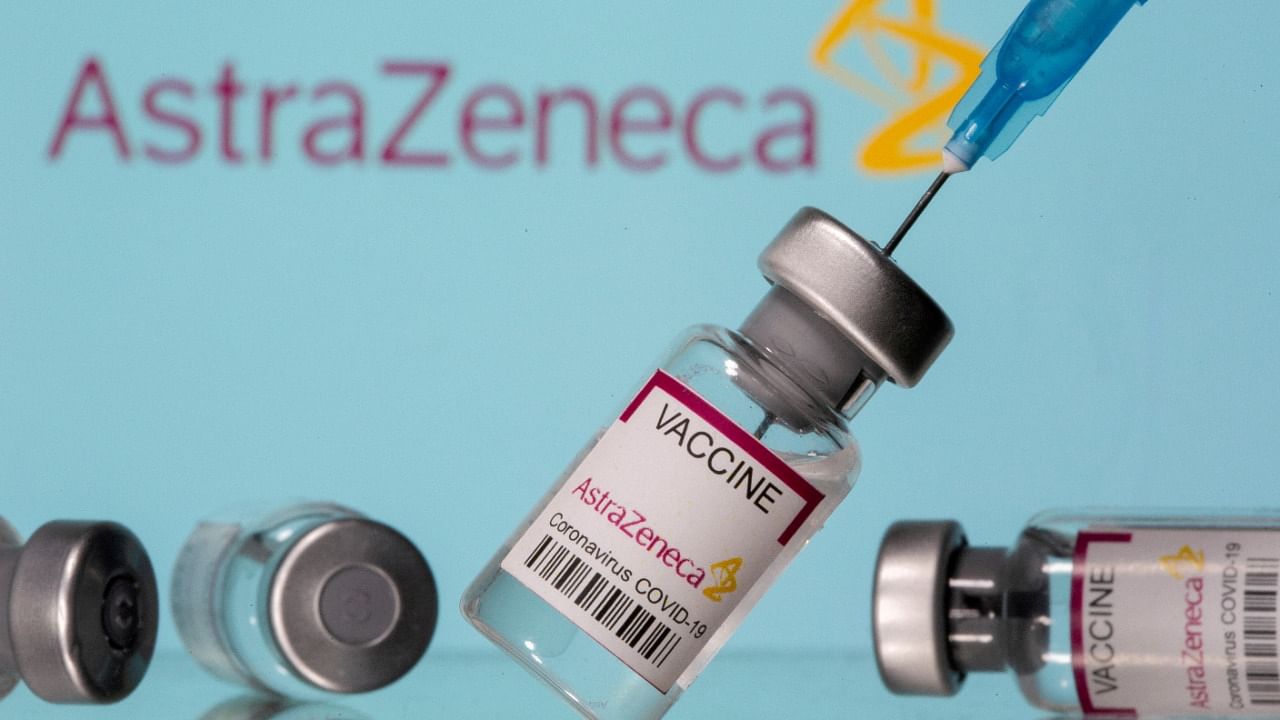
Rare reports of blood clots have been linked with the AstraZeneca jab.
Credit: Reuters Photo
AstraZeneca, a leading global pharmaceutical manufacturer, has acknowledged that its Covid-19 vaccine, developed in collaboration with researchers from Oxford University, may lead to a rare side effect involving blood clotting and reduced platelet count post-immunisation. In India, where the vaccine is marketed under the name Covishield, and produced by Pune-based Serum Institute, an estimated 1.75 billion doses have been administered.
This revelation comes amidst legal proceedings in the United Kingdom, with the company disclosing the side effect, known as Thrombosis with Thrombocytopenia Syndrome (TTS), in response to a lawsuit alleging severe harm and fatalities stemming from the vaccine. Although this marks the first formal acknowledgment in a legal setting, TTS has been extensively documented and recognised in scientific literature, surfacing shortly after the commencement of vaccination campaigns across Europe, prompting temporary suspensions in some nations' AstraZeneca vaccine rollouts.
Despite these developments, within matter of few hours, numerous Indian medical experts have provided reassurances that TTS syndrome should not pose significant concerns for individuals receiving the Covid-19 vaccine within a specific timeframe.
However, it's improbable for affected Indian patients to participate in the British petition due to legal complexities arising from disparate regulatory approvals and the vaccine's manufacture by an Indian entity, subject to local jurisdiction and laws. Nevertheless, numerous Indian legal experts assert that a class-action lawsuit in India remains a viable option.
But then, can every patient or the affected bear the cost? Can they bear the length of a legal trial, media focus, and probably even various pressures on them to give up such an attempt at understanding what really happened to their bodies with vaccines? Many among us have witnessed instances of the young and the seemingly healthy individuals experiencing health crises, some resulting in severe, lifelong implications, within our own circles of family and friends. Tragically, some have even lost loved ones to sudden, unexplained deaths, often attributed to fate or the uncertainties surrounding Covid-19. Additionally, reports of individuals collapsing and succumbing to death shortly after routine activities have become more prevalent, a phenomenon previously uncommon prior to the pandemic or widespread vaccination efforts. Consequently, it's only natural for us to speculate about a potential connection to the vaccine.
The implications of such speculation are profound. If indeed these incidents are vaccine-related, who then bears the enduring burden of responsibility? Moreover, how can we trust the reliability and objectivity of those tasked with investigating these interconnections? These questions strike at the very core of the urgent need for thorough and transparent research, as well as accountability from all stakeholders involved in the development, distribution, and monitoring of vaccines.
The approval of Covishield for emergency use in early 2021, coupled with the waiver of traditional vaccine trial protocols by drug regulators, has the potential to profoundly affect public confidence in the vaccine. Or for that matter, any vaccine or medicine in the future. Such expedited measures, while aimed at swiftly delivering vital vaccines to the populace during the pandemic, raise citizenry concerns regarding consumer recourse in the event of adverse effects.
During a pandemic, the prevailing sentiment of overwhelming gratitude towards vaccines probably inadvertently overshadowed the need to conduct a fair and comprehensive assessment of potential side effects. It is all too convenient for some to attribute medical conditions solely to familial medical history and genetic predispositions, while disregarding the potential impact of vaccinations.
Any scepticism regarding vaccine safety has been met with resistance or even disdain. While vaccines undoubtedly play a crucial role in mitigating the spread of infectious diseases, including Covid-19, it is essential to maintain a balanced perspective. Acknowledging and thoroughly investigating potential side effects is not an indictment of vaccines themselves but rather a fundamental aspect of ensuring public health and safety. But where does one even start with this fundamental task?
While governments acted out of necessity to address the urgent health crisis, the focus on vaccine deployment must not overshadow the plight of individuals suffering from various side effects. While it may be theoretically untenable to hold governments solely accountable, questions arise regarding the accountability of vaccine manufacturers and distributors, entities with decades of clinical expertise and responsibility in ensuring product safety.
In medico-legal contexts, it is often tempting to dismiss adverse events as isolated incidents. However, in the case of vaccine design, where meticulous testing is paramount, the impact of Covid-19 vaccines on individuals' lives, including ongoing health challenges, cannot be disregarded. Families grappling with potential vaccine-related fatalities deserve answers and support, as do those contending with the enduring consequences of vaccine-related health issues.
In a humanitarian plea, one may ask: Is it too much to expect vaccine makers to acknowledge that testing may have been insufficient? After all, each vial of vaccine, while undoubtedly saving countless lives, may also carry the weight of families mourning lost loved ones or individuals grappling with vaccine-related health issues. But vaccines, as much as any healthcare, is a hard-nosed business. Such an expectation is a flawed contradiction to the principles of justice. At the altar of a legal framework, such expectations would need time and financial resources.
The prospect of pursuing a medico-legal case can feel daunting for families already burdened by the consequences of vaccine-related adverse events. The pharmaceutical industry, with its considerable resources and legal expertise, may seem formidable in comparison. Yet, it is essential to remember that every individual impacted by vaccine-related issues deserves to have their concerns heard and addressed with empathy and fairness. Do we have such fairness in the Indian society?
(Srinath Sridharan is a policy researcher and corporate adviser. X: @ssmumbai.)
Disclaimer: The views expressed above are the author's own. They do not necessarily reflect the views of DH.